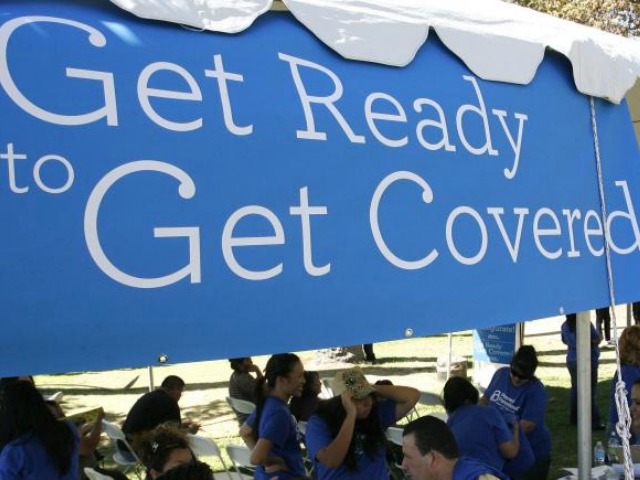
Nona Willis-Aronoqitz, 29, and Aaron Cassara, 32, are full-time freelancers and earn more than $62,000 a year, which means they do not qualify for the subsidies under Obamacare. The couple realized, however, they would be able to afford the plans if they divorce.
But if they applied as unmarried individuals with something like their 2012 income, one of them would get at least $3,964 in subsidies toward the purchase of a plan, or possibly even be eligible for Medicaid, thanks to their uneven individual earnings that year. And if they fall below the 400 percent threshold, which Nona says they might this year, they could get substantial subsidies as a couple that are still worth less than what they’d be eligible for as individuals. These gaps are the marriage penalty.
Ironically, the two married in 2009 because Aaron needed insurance. When they married, Nona had a full-time editor position with healthcare benefits. She was laid off and purchased a COBRA plan, but it expires at the end of January. Aaron is still a freelancer in the film industry, and it would be too expensive to cover him under her plan. If they divorced but still lived together and earned a combined income of $90,000, they would qualify for the healthcare subsidies. These include monthly premium and out-of-pocket costs like copays.
The Kaiser Family Foundation found that Obamacare treats single people better than married couples:
Married people who are uninsured make up just a small fraction of the uninsured, for obvious reasons: It is easier to be insured if you have two potential pathways of getting there. Only 15.4 percent of married people were uninsured 2012, according to research from the Kaiser Family Foundation; the uninsurance rate for “single adults living together” was more than twice as high–33.4 percent.
“In the tax code, you have a different set of tax rates for married couples that mitigates the marriage penalty to some degree,” says Robert Rector, a senior research fellow at the Heritage Foundation who has been writing about the marriage penalty in health reform since 2010. Under Obamacare, however, there are “dramatic” penalties that are “substantial–particularly with couples in the upper age range,” he says.
“What you are doing is saying … you have to pay a penalty of multiple hundreds of dollars–a substantial portion of your income–to stay married,” Rector says. “It’s saying society is basically hostile to the institution of marriage.”
Nona and Aaron are distressed and do not want to divorce, but their finances may not give them another choice. She thought about the people who had an elaborate wedding or even children. While it may be easier for them, the decision could be harder for others who are in their situation. This leads to another discussion: how will Obamacare affect the family now and later? With these marriage penalties, could it lead to fewer marriages and more children born out of wedlock or even further decrease the birth rate?
Experts on the impact of marriage penalties were skeptical that many couples would consider divorce over insurance rates. Still, there is some data to suggest that marriage penalties embedded in government programs can discourage marriage among those who are benefiting from programs that favor the unmarried.
There’s no data yet on the potential size of the population potentially affected by such concerns under the Affordable Care Act, but Medicaid and other means-tested programs “already created that kind of potential marriage penalty,” he notes. At least half of the newly insured under ACA will be insured under Medicaid.
Nona and Aaron are still searching for full-time work. She told The Atlantic she will either be divorced or working full-time again in six months.

COMMENTS
Please let us know if you're having issues with commenting.